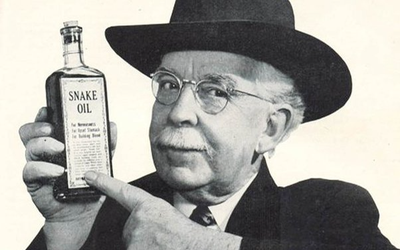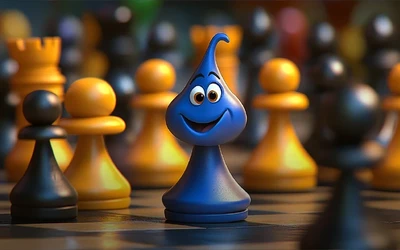
“Are you studying openings wrong? A Coach’s Honest Take”
Why do chess players spend endless hours studying openings, when most games are decided by mistakes in positions nobody prepared for?
The opening is the first stage of any chess game, the goal of which is rather simple - develop the pieces, control the center, in general just get your forces ready to fight. So why is it so discussed?
One reason is the sheer amount of theory available. Openings continue to deepen, and modern engines discover new lines and ideas every day.
Another reason is the ease of study. Of course, endgames and middlegames also have a vast amount of content to explore, but the difference is that openings are a lot easier to analyse - they start right at the starting position, you can always choose to study whatever line you want, the widely available opening database makes it easy to see which moves are often played and which ones are less popular.
Third, maybe the most important, is that it gives immediate results. When you go to learn some specific variation, then later load up an online game on lichess, the chance of playing a line or move that you recently learned is quite high. Of course, such chances increase if you play more games and study more lines. This gives us confidence and belief that we are learning something - how can it not be the case? I learned the move and I played it right here, look! In reality, what we are doing here is reciting instructions of how to build an IKEA shelf, but what happens when we have to build something similar, but from a different company?
To conclude why I think work on openings is done ineffectively most of the time, I would mainly blame the elements of instant gratification, ease of access to material and the general difficulty of the rest of chess. Now, to be clear — memorising opening lines isn’t bad in itself. In fact, it’s a necessary part of serious chess improvement. The problem is when it isn’t backed up by an understanding of the typical structures those openings lead to. Without that, you might know what to play up to move 15, but have no idea what your pieces should be doing afterwards. Memorisation should serve as a framework, not a crutch.
But why is this kind of study not very good? What can be better than memorising ways to get good positions in every game? The problem is that chess is too complex and there is usually no such thing as "the move" in every position. Especially in openings, where the possibilities are endless. This means that on every turn your opponent can willingly or unwillingly play "suboptimally" and give you an advantage of 0.3 or 0.5 or something similar, which at the club level isn't very significant and at no level is it a winning advantage. So, even if you get everything that you know on the board, it still will not give you anything substantial.
So what can be done? How should openings be learned? What helped me the most was learning pawn structures. This may seem like a middlegame topic, but in fact every opening has structures that most often arise from them. Some examples include, but are not limited to the Advanced French structure, the modern Benoni structure, the King's Indian exchange structure, etc. All of the most common structures have been widely studied and all of the typical ideas, manoeuvres, tactical motives and traps are known by the experts of the openings. Most of the time, we can learn from their games and annotations about these typical ideas and then try to apply them in our own games, slowly learning which ideas are most appropriate in most kind of situations. Such a process is slow but it's what gives the biggest results and which ends in what we call "understanding" of the opening. Next, I’ll share a few games showing what happens when a player isn’t familiar with the ideas behind the opening and its typical structure
I would also like to show some examples of overmemorisation
Finally, I would like to show some games which illustrate the importance of knowing the typical ideas and patterns of specific pawn structures and how they help to win games in the long run
To conclude, I would just like to state that knowing some moves in the opening is important for confidence and feeling good during your games, but it's not what wins games. Real understanding of openings and the ensuing structures requires hard work and time. Memorisation of opening moves should be used to get the kind of structures and positions which we have studied, not to play these positions without thinking. A good opening repertoire requires us not only to have a database with many lines, but also a few good model games where some typical ideas are illustrated. Learning new variations and ideas in our familiar structures should be a part of everyone's training plan, no matter the level.
If you found this post helpful and connected with the ideas here, you might be interested in the work I'm doing at Chessodoro (https://chessodoro.com) For the past few months, I've been coaching ambitious improvers and creating personalized training plans designed for real, lasting improvement (we cover openings too, if that's required).
As a thank you for making it to the end of the article, you can use the promo code OPENINGS35 for 35% off your first personalized training plan.
You may also like
 FM benkonian
FM benkonianWhat even is calculation?
Nobody doubts the importance of it, but do we even have a definition? FM CheckRaiseMate
FM CheckRaiseMate15+10 Is All You Need
The simplest plan for chess improvement FM benkonian
FM benkonianIs blitz chess good for our chess?
Most of us play some or more online blitz chess quite regularly, some of us take it more seriously, … CM HGabor
CM HGaborHow titled players lie to you
This post is a word of warning for the average club player. As the chess world is becoming increasin… GM Avetik_ChessMood
GM Avetik_ChessMood10 Things to Give Up to Enjoy Chess Fully
Discover how embracing a lighter mindset can help you enjoy chess again and achieve better results. FM MathiCasa
FM MathiCasa